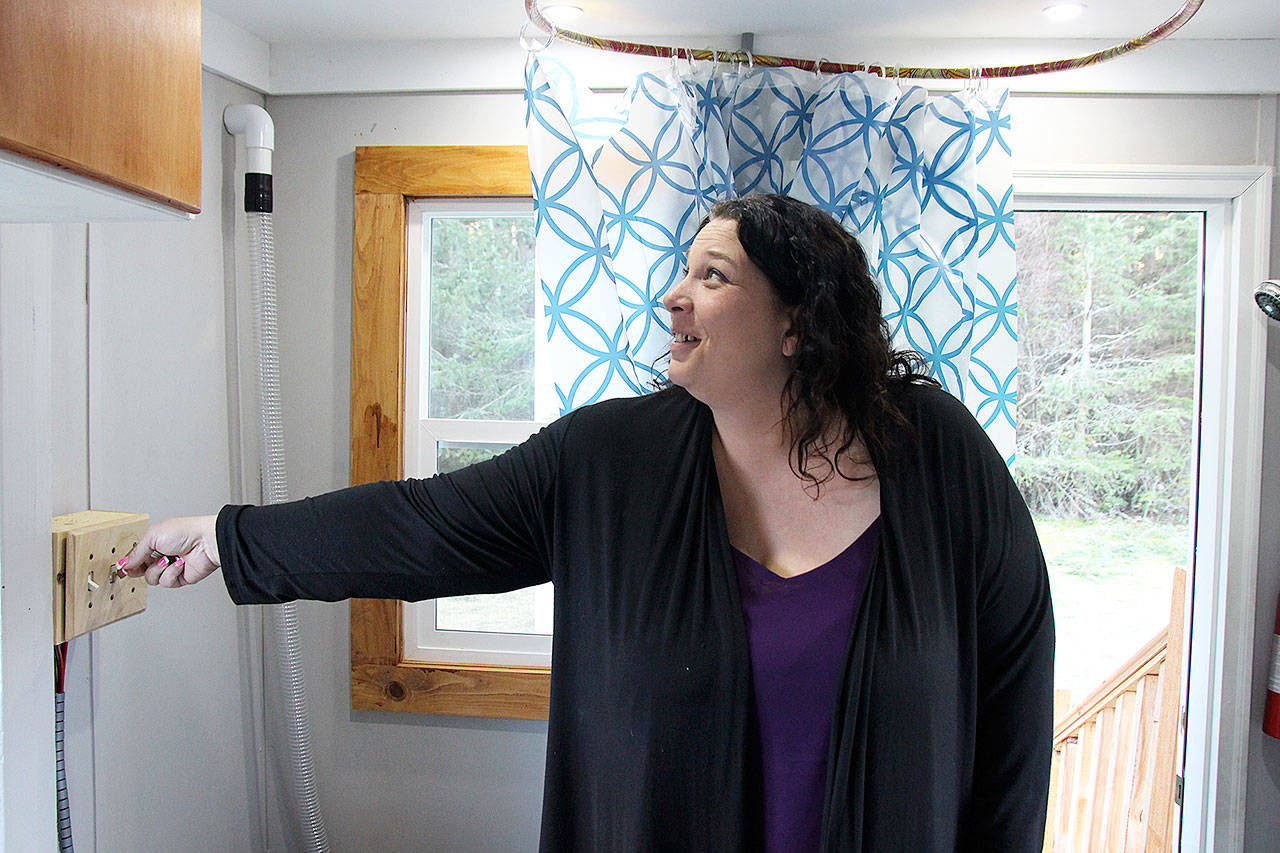A recent donation to Ryan’s House for Youth proved too good an opportunity to pass up, even if it can’t be used yet.
“The micro home was kind of sprung on us,” program manager Amber Truex said.
“We’re not going to say no,” she added.
The Oak Harbor robotics team built a “micro home” last March in an effort to address homelessness in the community. However, time started running short on how long they could store the home before donating it to an organization. With the guidance of district homeless liaison and SPIN Cafe founder Vivian Rodgers Decker, the team settled on Ryan’s House.
With it’s 17.5 acres in Central Whidbey, the nonprofit organization aimed at supporting homeless and at-risk youth seemed an ideal location. Truex said the micro home would be ideal for the transitional housing program.
Leadership at Ryan’s House, which started on South Whidbey, is still working through the logistics on how that can be achieved.
The self-contained, mobile micro home would be considered an RV by Island County code, according to county Building Official Andy Griffin. He said the group’s site plan would need to be amended to allow for the structure.
Truex said tiny homes have been in the conversation for a while as a “second stage” in the transitional housing program, which services 18-to 24-year-olds. Those who qualify can stay in a room on the campus for up to two years while receiving support on budgeting, schooling and a plan to find permanent housing.
To qualify, the young adults are required to either be a full-time student or be employed. Rent starts at 20 percent of the participant’s income and slowly increases, capping at 30 percent.
For the full-time high school students, the No. 1 goal is graduating and support on homework and other assistance is provided to help achieve that, she said.
Truex said the idea is to ensure the young people are saving money while learning the skills. She said the program has had a high success rate for placing people in housing before two years are up.
Tiny homes would provide opportunities for increased independence and privacy for those in the program, she said. The robotics team’s 8-by-10-foot unit is completely self contained.
It’s powered by solar panels, heated by propane and the toilet composts its contents. It contains a bed, bench, stove, shower and toilet. It’s also licensed and can be hooked up and towed.
“The robotics club did an amazing job,” Truex said. “… The possibilities are really endless.”



